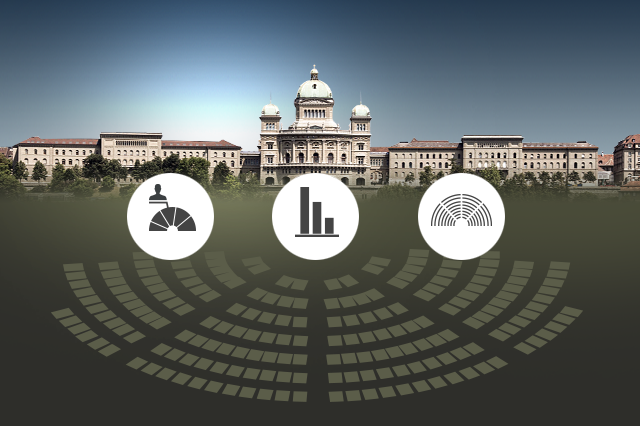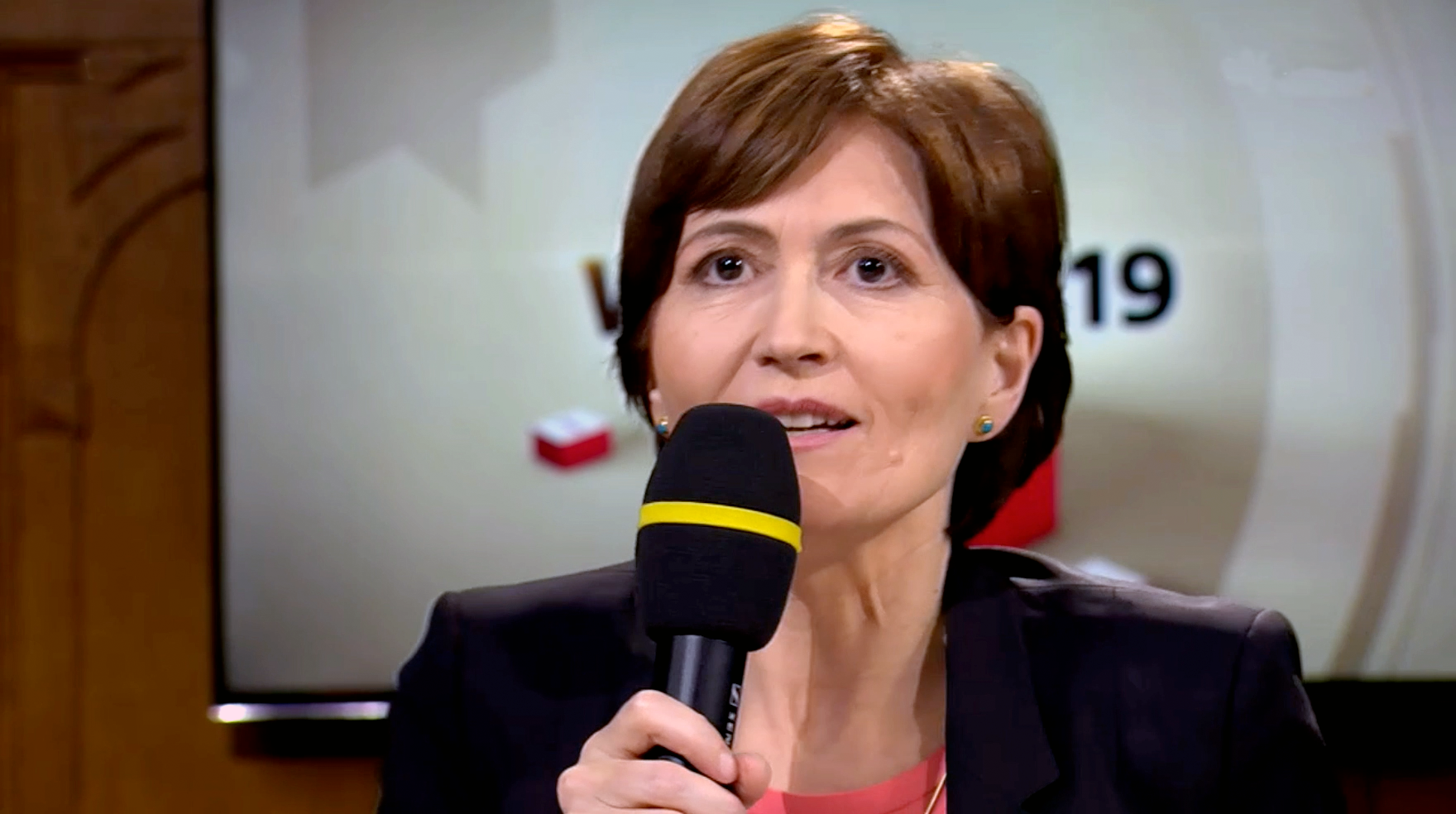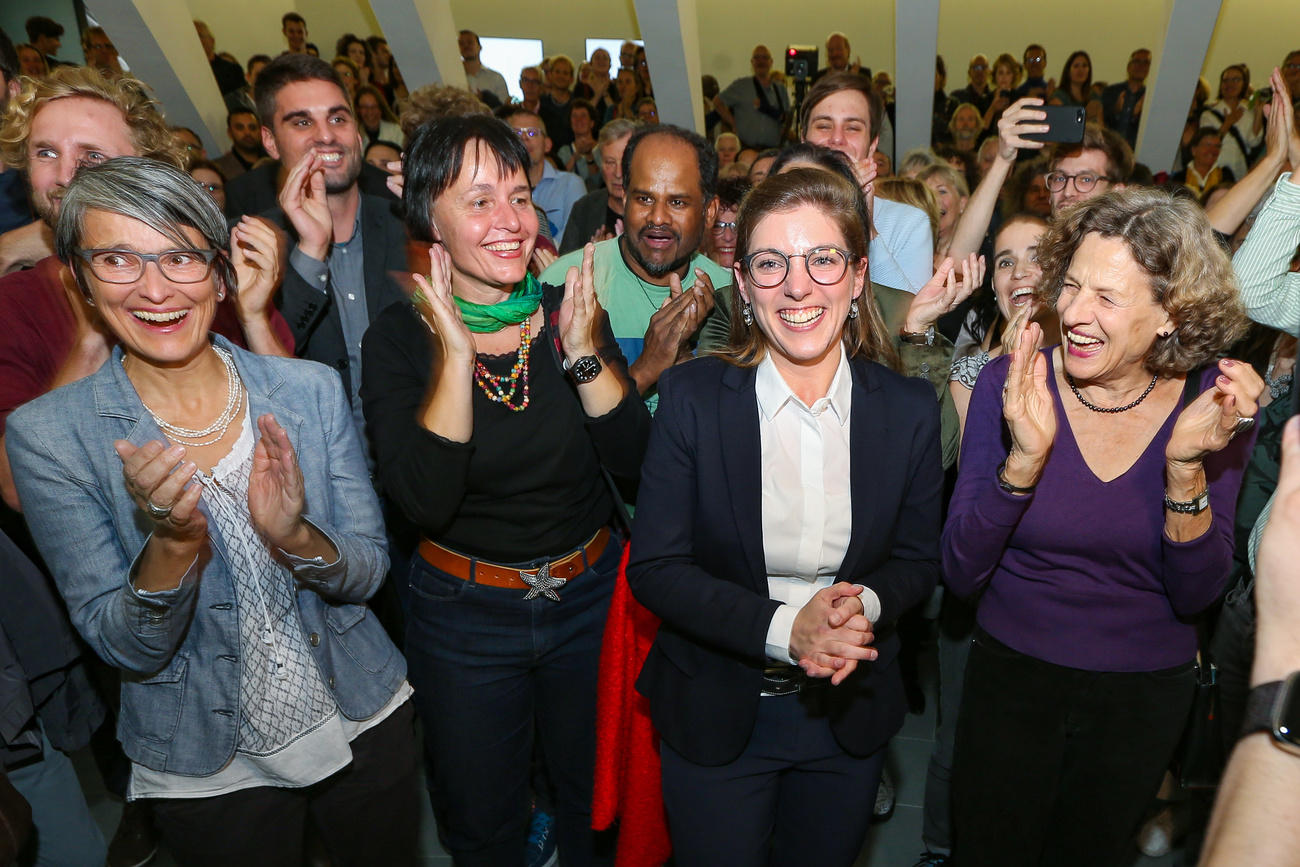What lies ahead for Switzerland after the vote?

The votes have been cast and the results are in. Green, female and progressive were the headlines from this election. What does this historic vote mean for Switzerland going forward?
The big gains by the Green Party and the Liberal Greens showed that many Swiss citizens want politics to go beyond their own backyard. “Now, suddenly, a new force is coming into play that has a strong voter mandate on climate,” said Green Party president Regula Rytz in an interview with online magazine WatsonExternal link.

More
Swiss elections: Landslide Green gains tip parliament to the left
The key message this sends is that Switzerland must open up internationally and play a stronger role in tackling the climate crisis. The global nature and scale of the threat means that Switzerland has a duty. It is a small country, but it has a lot to contribute in terms of knowledge and technologies and above all, sufficient resources to develop solutions.
For Switzerland, there is now a mandate to become a role model, a pioneer and a laboratory for other countries.
When there is a political shift, it is usually enough to talk about a few percentage points. But the changes were big – and more than expected. The biggest winner was the Green Party, which won 17 additional seats in the House of Representatives. The biggest loser – the Swiss People’s Party – lost 12 seats.
This may seem modest compared to other European countries that have seen entire bases of established political parties erode and new political movements secure victories. But these wins and losses are enormous by Swiss standards.
Many Swiss were disappointed by the parliament’s work in the last term as it made little or no progress on several important issues. Unresolved questions include how to tackle rising healthcare costs, relations with the European Union, and a sustainable revision to the old age and survivors’ insurance scheme.
For years, voters have accepted the slow churn of politics and opted for small steps over a revolution.
But in this new constellation, roadblocks can be overcome, especially on European politics and healthcare. A new CO2 law is also expected. The wish of this new parliament is to find its way back to a good Swiss compromise.

More
The Greens have dramatically upped their numbers
Switzerland’s big unresolved questions have been on ice for years. First there is the framework agreement with the EU, on which no politician wanted to take a strong stance during the election campaign and risk paying the price for it. The new parliament is expected to make progress in addressing climate change and shrinking biodiversity, but there are many other urgent issues that Switzerland hasn’t even begun to find answers to.
Demographic changes are leading to an ageing society and deepening the generational gap. Digitalisation is eating up jobs and dividing the population into winners and losers. There are also geographic changes underway, with growing divides between rapidly growing cities and the countryside. There are also many issues where the country has been stuck in a cul-de-sac, including agriculture, healthcare and monetary policy. If they are ignored, there is a threat of a break down.
Around half a million women took to the streets during the nationwide women’s strike in June to demand gender equality. Never before have so many women run for parliamentary seats as they did in these elections, and both chambers are set to have more seats held by women. At the cantonal level, women made history. The cantons of Obwalden and Zug will be represented by women for the first time. The share of women also increased in at least seven of the country’s 26 cantons.
Flavia Kleiner, co-president of the youth activist group Operation Libero, said that it was a good day for democracy. The gains for female candidates show that “awareness has sharpened. It is not enough for men to have good intentions. Women don’t want to leave men to represent them. Democracy is better if both genders are represented equally,” said Kleiner.
With an election result as shape-shifting as this one, talk is naturally turning to the composition of the Federal Council (the executive branch or cabinet). Green Party president Regula Rytz is now demanding a seat on the executive for her party. Even if there is some legitimacy to the demand, there is no urgency to it, say some parties.
In Switzerland, there is no tradition of removing or deselecting existing cabinet members. Following the elections, parliament is now centre-left, but the government leans to the right. The discussion has been launched but won’t lead to any decisions until the election of the new government on December 11.

More
Will the Greens go for a government seat?
Adapted from German by Jessica Davis Plüss

In compliance with the JTI standards
More: SWI swissinfo.ch certified by the Journalism Trust Initiative













You can find an overview of ongoing debates with our journalists here . Please join us!
If you want to start a conversation about a topic raised in this article or want to report factual errors, email us at english@swissinfo.ch.